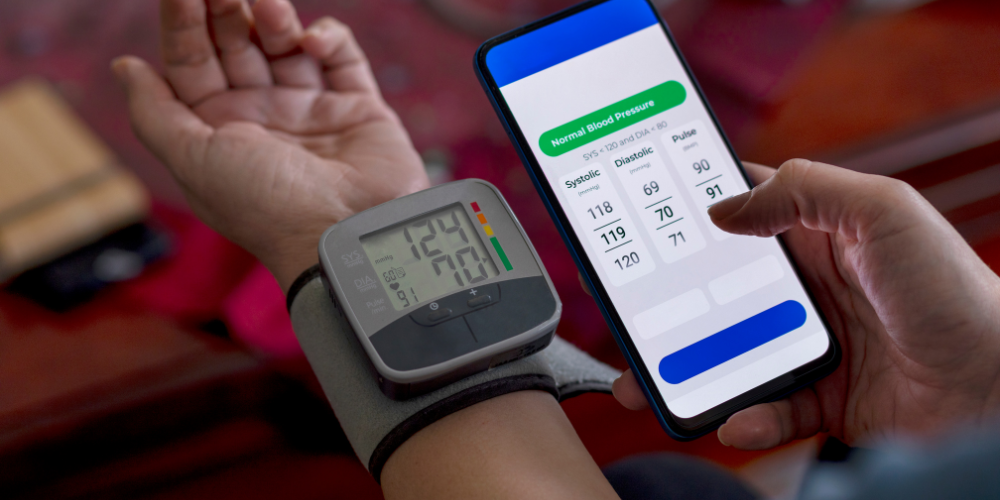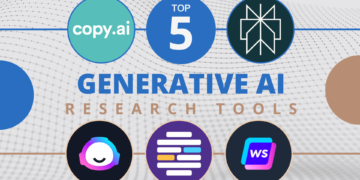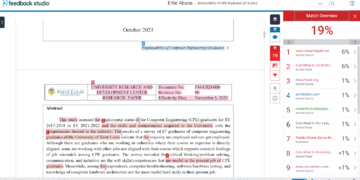Artificial Intelligence (AI) is revolutionizing healthcare with innovations that are setting new standards for patient care, treatment efficiency, and medical research. As we advance into 2024, several groundbreaking breakthroughs in AI-powered healthcare are emerging. These developments not only promise to enhance diagnostic accuracy and treatment effectiveness but also to transform the overall healthcare landscape. Here’s a closer look at the top 5 breakthroughs making waves in AI-powered healthcare innovations this year.
AI systems have significantly advanced in their ability to diagnose diseases at earlier stages than traditional methods. These systems leverage sophisticated algorithms and machine learning models to analyze complex medical data. Recent innovations include AI tools that utilize deep learning to interpret medical images, such as MRI scans and X-rays, with remarkable precision. For instance, new AI models are capable of detecting early signs of cancer, cardiovascular diseases, and neurodegenerative disorders before symptoms become apparent.

Impact
- Life-Saving Potential: Early diagnosis through AI can be crucial in identifying life-threatening conditions before they progress, significantly improving the chances of successful treatment and survival.
- Enhanced Treatment Outcomes: By detecting diseases at their nascent stages, AI-driven systems enable more effective and less invasive treatment options, often leading to better overall health outcomes.
- Reduced Healthcare Costs: Early identification of diseases can lower the costs associated with advanced disease management, including reduced need for complex and costly treatments.
- Improved Quality of Life: Timely diagnosis and intervention can enhance patients’ quality of life by addressing health issues before they become severe and debilitating.
- Financial Burden Relief: Proactive disease management reduces the financial strain on healthcare systems, benefiting both patients and healthcare providers through decreased treatment expenses and resource utilization.
Future Directions
- Regulatory and Ethical Frameworks: Developing and implementing regulatory and ethical frameworks will ensure that AI-driven early diagnosis systems are used responsibly, protecting patient privacy and maintaining high standards of care.
- Advancements in Algorithmic Precision: Continued development of AI algorithms, including more advanced deep learning techniques, will improve the precision and accuracy of early diagnosis systems, allowing for even earlier detection of diseases.
- Integration of Multi-Modal Data: Future systems may integrate various data sources, such as genetic, lifestyle, and imaging data, to offer more comprehensive diagnostic insights and personalized treatment recommendations.
- Explainable AI (XAI): Innovations in explainable AI will aim to make AI models more transparent, helping healthcare professionals understand and trust the diagnostic processes and decisions made by these systems.
- Expansion of Data Sets: Expanding and diversifying medical datasets will be crucial for training more robust AI models, improving their ability to generalize across different populations and medical conditions.
Personalized medicine represents a revolutionary approach to healthcare by tailoring medical treatments to individual patients based on their unique genetic, environmental, and lifestyle factors. AI plays a pivotal role in this paradigm by analyzing vast amounts of data to provide insights into the most effective treatments for each patient. By leveraging machine learning algorithms and big data analytics, AI systems can predict patient responses to various therapies, identify potential side effects, and recommend customized treatment plans.

Impact
- Targeted Treatments: AI enables the development of highly personalized treatment plans that are specifically designed to match an individual’s unique genetic and health profile, improving treatment efficacy and minimizing adverse effects.
- Improved Patient Outcomes: By customizing treatments based on detailed patient data, AI helps achieve better health outcomes and higher success rates in managing chronic conditions and diseases.
- Reduced Trial and Error: AI-driven insights reduce the trial and error process in treatment selection, leading to quicker and more accurate therapeutic interventions.
- Enhanced Drug Development: Personalized medicine powered by AI accelerates the drug discovery process by identifying potential drug candidates and optimizing clinical trial designs based on patient-specific data.
- Cost Efficiency: By focusing on personalized treatments, AI helps avoid ineffective therapies, reducing overall healthcare costs associated with unsuccessful treatments and prolonged care.
Future Directions
- Interdisciplinary Collaboration: Greater collaboration between AI researchers, clinicians, and geneticists will drive innovation in personalized medicine, fostering the development of integrated solutions that address complex health issues more effectively.
- Integration of Genomic Data: The future of personalized medicine will increasingly incorporate genomic data, enabling even more precise treatment plans based on an individual’s genetic makeup.
- Expansion of AI Algorithms: Advancements in AI algorithms will improve the ability to predict patient responses to treatments, leading to more accurate and effective personalized medicine solutions.
- Enhanced Data Collection: Increased availability of comprehensive patient data, including lifestyle and environmental factors, will further refine AI models and enhance the precision of personalized medicine.
- Ethical and Privacy Considerations: Addressing ethical and privacy concerns related to the use of sensitive genetic and health data will be crucial for ensuring responsible and equitable application of AI in personalized medicine.
AI-powered predictive analytics are transforming patient monitoring by analyzing data from various sources to forecast potential health issues before they arise. These systems use machine learning algorithms to process data from electronic health records (EHRs), wearable devices, and other monitoring tools to predict adverse events, track disease progression, and optimize treatment plans. Predictive analytics help healthcare providers intervene early, personalize patient care, and improve overall health outcomes.

Impact
- Early Intervention: Predictive analytics enable early intervention by identifying potential health issues before they become critical, reducing the risk of complications and hospitalizations.
- Personalized Care Plans: AI-driven predictions help tailor care plans to individual patient needs, enhancing the effectiveness of treatments and improving patient outcomes.
- Improved Resource Allocation: By forecasting patient needs, healthcare providers can better allocate resources, reduce hospital overcrowding, and improve operational efficiency.
- Enhanced Monitoring: Continuous and real-time data analysis allows for proactive monitoring of chronic conditions, ensuring timely adjustments to treatment plans.
- Cost Savings: Early detection and intervention reduce the need for emergency care and lengthy hospital stays, leading to significant cost savings for both patients and healthcare systems.
Future Directions
- Integration with Wearable Technology: Future advancements will integrate predictive analytics with wearable health devices, providing continuous and detailed monitoring of patient health.
- Advancements in Machine Learning: Improved machine learning algorithms will enhance the accuracy of predictions and enable more precise and actionable insights for patient care.
- Personalized Health Models: Development of more personalized predictive models based on individual health data will refine risk assessments and treatment strategies.
- Data Privacy and Security: Ensuring robust data privacy and security measures will be essential for maintaining patient trust and compliance with regulations.
- Collaborative Healthcare: Enhanced collaboration between data scientists, clinicians, and healthcare providers will drive innovation and implementation of predictive analytics in patient monitoring.
AI is revolutionizing drug discovery by accelerating the process of identifying and developing new pharmaceuticals. Leveraging advanced algorithms and big data analytics, AI systems can analyze vast datasets, including chemical compounds, biological data, and clinical trial results, to discover novel drug candidates and optimize their development. AI-driven drug discovery helps streamline research processes, reduce costs, and bring new treatments to market more efficiently.

Impact
- Faster Drug Development: AI speeds up the drug discovery process by predicting the efficacy and safety of new compounds, significantly shortening development timelines.
- Increased Success Rates: AI models enhance the accuracy of predicting drug interactions and outcomes, improving the likelihood of successful clinical trials.
- Cost Reduction: By identifying promising drug candidates early and reducing the need for extensive trial and error, AI helps lower the overall costs of drug development.
- Innovation in Treatments: AI facilitates the discovery of new and novel drug targets, potentially leading to breakthroughs in treating previously untreatable conditions.
- Efficient Resource Utilization: AI-driven approaches optimize the use of research resources, improving the efficiency of pharmaceutical research and development.
Future Directions
- Integration of Multi-Omics Data: Future drug discovery will benefit from integrating multi-omics data (genomics, proteomics, metabolomics) to develop more comprehensive models of disease and drug interactions.
- Advancements in Computational Power: Enhanced computational capabilities will enable more complex simulations and analyses, improving the accuracy of drug discovery predictions.
- Collaboration with Pharma Industry: Increased collaboration between AI researchers and pharmaceutical companies will drive the adoption of AI technologies and innovations in drug development.
- Regulatory Frameworks: Developing regulatory guidelines for AI-driven drug discovery will ensure the safe and effective integration of these technologies in pharmaceutical research.
- Ethical Considerations: Addressing ethical issues related to AI in drug discovery, such as data privacy and bias, will be crucial for maintaining public trust and ensuring equitable access to new treatments.
AI-based robotics are transforming surgical procedures by enhancing precision, flexibility, and control during operations. These robotic systems, equipped with advanced AI algorithms, assist surgeons with intricate tasks, improve surgical outcomes, and reduce recovery times. By integrating AI with robotic technology, surgical procedures can be performed with higher accuracy and efficiency, leading to better patient care.

Impact
- Increased Precision: AI-powered robotics enable highly precise movements and control during surgery, reducing the likelihood of errors and improving the accuracy of surgical interventions.
- Reduced Recovery Times: Minimally invasive techniques facilitated by robotic systems result in smaller incisions, leading to faster recovery times and less postoperative discomfort for patients.
- Enhanced Surgical Outcomes: AI-based robots provide real-time feedback and support, enhancing the surgeon’s capabilities and improving overall surgical outcomes.
- Improved Patient Safety: Robotic systems equipped with AI can monitor patient vitals and surgical parameters, ensuring greater safety and reducing the risk of complications.
- Optimized Surgical Planning: AI algorithms assist in preoperative planning and simulation, enabling surgeons to anticipate challenges and tailor procedures to individual patient needs.
Future Directions
- Ethical and Regulatory Developments: Ongoing efforts to establish ethical guidelines and regulatory standards for AI-based surgical robotics will ensure their safe and effective use in clinical settings.
- Advanced Robotic Systems: Development of more sophisticated robotic systems with enhanced AI capabilities will further improve surgical precision and expand the range of procedures that can be performed robotically.
- Integration with Augmented Reality (AR): Combining AI robotics with AR technology will provide surgeons with immersive, real-time visualizations of the surgical field, enhancing decision-making and accuracy.
- Personalized Surgery: AI-driven robots will evolve to offer personalized surgical solutions based on individual patient anatomy and medical history, optimizing outcomes.
- Training and Simulation: Enhanced AI-based training and simulation tools will improve surgeon skills and proficiency with robotic systems, leading to better clinical outcomes.





































